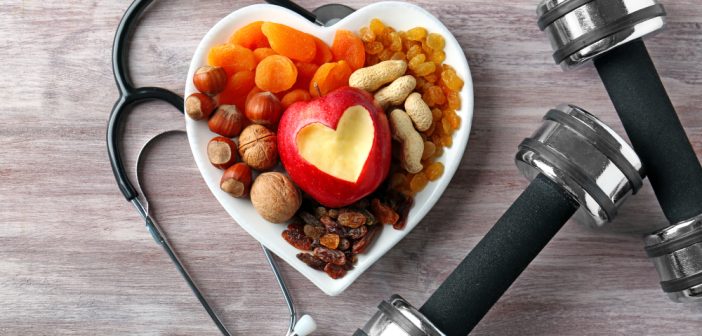An aspirin a day keeps a heart attack away — or so we thought.
For years, doctors advised seniors to take a daily dose of baby aspirin to help prevent heart attacks and strokes. However, this advice is changing as new research emerges.
As WebMD.com reports, those aged 60 and older who have not experienced a heart attack or stroke should stop taking daily aspirin entirely. “Because the chance of internal bleeding increases with age, the potential harms of aspirin use cancel out the benefits,” said Michael Barry, M.D., a member of the U.S. Preventive Services Task Force.
But don’t worry: Seniors can still decrease their chances of heart attacks and strokes. The best prevention is to live an active and healthy lifestyle. Here are four ways to do just that:
1. Eat a heart-healthy diet
Healthy eating will allow you to control your blood pressure and monitor your cholesterol, which can help prevent a heart attack and stroke.
“When trying to maintain a healthy diet, it is important that you control your portion size and incorporate more fruits and vegetables into your meals,” says dietary manager Albert Domingo at Villa Valencia Healthcare Center, a skilled nursing facility in Laguna Hills, California.
Domingo recommends using a bowl or small plate when dishing your food to prevent overeating and to fill your plate with colorful vegetables like broccoli, carrots and squash. “Eating a variety of colors will help you obtain more nutrients and minerals.”
Seniors can also try to limit saturated fats, refined sugar, overly processed foods, fast foods and sodium. Choose low-fat meats like lean turkey and substitute unhealthy foods for healthier options. For example, replace sour cream with plain Greek yogurt and vegetable oil with applesauce. If you have a sweet tooth, opt for dark chocolate or sugar-free treats to appease your sugar cravings.
Following these tricks can help you maintain a healthy heart that is less susceptible to heart attacks and strokes.
2. Exercise regularly
Exercise is a great way to keep your heart healthy and strong. Just ask NCBI researchers: After monitoring over 4,000 seniors around age 73 and free of heart disease, researchers found that after 10 years, over 1,000 of these individuals had passed away due to some form of heart disease. The study concluded that physical activity is associated with a significantly lower risk of heart conditions.
As a senior, the idea of running or riding a bike may not seem too appealing. The good news is that any physical activity that increases your heart rate is considered exercise. This includes taking short walks around your retirement home, strengthening your muscles with light weights, or practicing your balance by walking up and down a set of stairs.
Before participating in new exercise routines, discuss your plans with your doctor to help prevent injury and physical complications.
3. Kick your smoking habit
Smoking puts you at a higher risk of heart attack and stroke and causes almost 20 percent of cardiovascular disease deaths every year. When you smoke, the chemicals you inhale cause the cells that line your blood vessels to inflame. The damage your heart and blood vessels receive over time can lead to intense heart conditions.
However, if you quit smoking now, your heart can recover quickly. Within 20 minutes after smoking your last cigarette, your heart rate and blood pressure drop. A year after your last cigarette, your risk of getting a heart attack is reduced dramatically; 14 years after that, your risk of coronary heart disease is the same as a nonsmoker’s.
If you have trouble quitting smoking, talk to your doctor about recommendations, use your loved ones as a support system and look for tips from reputable sources.
4. Monitor your drinking
Heavy drinking can increase your risk of heart attack by 40% and your risk of stroke by 35%. The American Heart Association recommends drinking in moderation if you want to drink at all. This means that men should only have one or two drinks per day, and women should only have one. By monitoring your alcohol intake now, you can help prevent heart disease later on.
A healthy heart is a happy heart. Although aspirin is no longer the silver bullet we once thought it was, there are other, better ways to take care of your heart. As you develop a healthy diet, exercise regularly, stop smoking and drink less, you can decrease your chances of having a heart attack and stroke and improve your body’s overall health.
Marisa Gooch is a project manager at Stage Marketing, a full-service content marketing agency based in Provo.
A version of this article was published by The Daily Herald. It has been republished here with permission.




